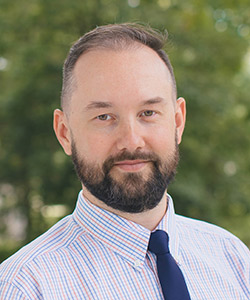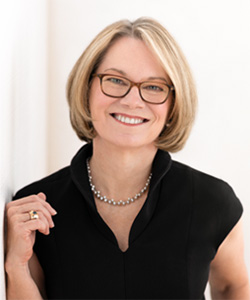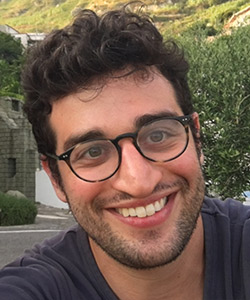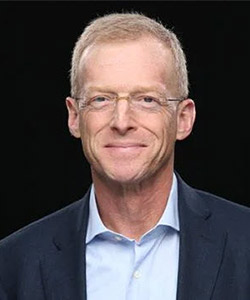About Us
The Institute for Regulatory Law & Economics (IRLE) provides a means of supporting and developing thoughtful regulatory decision-making in a context of technological dynamism. The IRLE strives to bring a clear theoretical framework in law, economics, and technology to actual regulatory practice through research and education, emphasizing the law and economics of network industries and technological dynamism.
As digitization and energy technology innovation change the electricity and communications industries, regulatory decision-making to unleash the economic and environmental benefits of these innovations will rely on credible, current, interdisciplinary analysis in law, economics, and technology. IRLE’s focus on regulatory economic analysis and technological dynamism positions it to become the leading source of technology policy analysis for evolving digital and energy transitions, and a focal point for energy technology policy community.
Since 2004 IRLE has convened an annual workshop for state public utility commissioners and staff members. IRLE draws on the expertise of leading academics, practitioners, and scholars. The range of expertise among the faculty spans economics, experimental economics, finance, law, and technology. One highlight that distinguishes the IRLE curriculum from other regulatory programs is the use of experimental economics, focusing on the unique nature of electricity markets and how changes in the institutional structure of those markets can change incentives and outcomes.
Faculty
Rim Baltaduonis
 Scientist. SLAC National Accelerator Laboratory, Stanford University
Scientist. SLAC National Accelerator Laboratory, Stanford University
Associate Professor of Economics, Gettysburg College
Rimvydas Baltaduonis (Rim) works as a Project Scientist with the SLAC National Accelerator Laboratory’s Grid Integration Systems and Mobility (GISMo) team at Stanford University. He is also an Associate Professor in the Economics Department at Gettysburg College and co-directs Gettysburg Lab for Experimental Economics (GLEE). While being a longtime affiliate of the Institute for Regulatory Law & Economics (IRLE), Dr. Baltaduonis also worked as a Visiting Senior Research Scholar at Columbia’s Center on Global Energy Policy (CGEP) during 2019-2020 academic year and a Visiting Senior Scholar at the Federal Energy Regulatory Commission (FERC) from 2015 to 2017. Baltaduonis' broad areas of research interest are industrial organization, energy and environmental economics, energy security, experimental and behavioral economics. His current research focuses on the design and behavior of electric power markets. He also conducts workshops on laboratory economics experiments designed to inform energy policy. At Gettysburg College, he taught Industrial Organization, Energy & Security, Energy Economics and Experimental Economics. The National Science Foundation, the International Foundation for Research in Experimental Economics (IFREE) and the Australian Research Council have supported his research. Prior to assuming his faculty position at Gettysburg College, Baltaduonis was an IFREE Visiting Post-doctoral Fellow in the Interdisciplinary Center for Economic Science at George Mason University and later at the Economics Science Institute at Chapman University. He earned his PhD and MA in Economics from the University of Connecticut and a BSc in Economics from Vilnius University in Lithuania.
Raymond L. Gifford
 Partner, Management Committee Member, Wilkinson Barker Knauer, LLP
Partner, Management Committee Member, Wilkinson Barker Knauer, LLP
Raymond L. Gifford counsels communications, electric and gas utilities, and information technology companies on state and federal aspects of regulation, administrative law, and competition policy. He is an expert in public utilities law, and the law and economics of regulation of network industries. Mr. Gifford’s law and policy work focuses on the convergence of broadband communications and energy, as well as environmental policy as it applies to the electric industry. He represents clients in state and federal courts and agencies, and serves as an expert witness on utility regulation and its history. He is also an Executive Fellow at the Silicon Flatirons Center for Law, Technology and Entrepreneurship, and Co-Founded the Institute for Regulatory Law & Economics at University of Colorado Law School.
Lynne Kiesling
 Director, Institute for Regulatory Law & Economics
Director, Institute for Regulatory Law & Economics
Adjunct Professor, Master of Science in Energy & Sustainability, Paula M. Trienens Institute for Sustainability & Energy
Research Professor, University of Colorado, Denver
Lynne Kiesling is an economist focusing on regulation, market design, and the economics of digitization in the electricity industry. She is Director of the Institute for Regulatory Law & Economics in the Center on Law, Business, and Economics, and is an Adjunct Professor in the Master of Science in Energy and Sustainability program, both at Northwestern University. She is also a Research Professor at University of Colorado Denver. Her academic background includes a B.S. in Economics from Miami University (Ohio) and a Ph.D. in Economics from Northwestern University.
Lynne’s academic interests have long been focused on technology, the economic history of technological change, and how regulation and other institutions shape incentives to innovate. Her academic publications include Deregulation, Innovation, and Market Liberalization: Electricity Restructuring in a Constantly Evolving Environment (Routledge, 2008) and journal articles and book chapters on competition, market design, and the important role that market prices play as communication mechanisms in complex, decentralized networks. More recently, she and co-authors analyzed incomplete markets in risk in ERCOT in light of the 2021 Winter Storm Uri outages in “Private Risk and Social Resilience in Liberalized Electricity Markets,” Joule (2022), and she and Stephen Littlechild used a decentralized market process framework to analyze policy responses to Winter Storm Uri and recommend alternatives in “Hayek and the Texas Blackout,” Electricity Journal (2021).
Lynne has also contributed to the development of transactive energy systems since collaborating on the GridWise Olympic Peninsula Testbed Demonstration Project in 2006-2007. She is currently working in collaboration with David Chassin (SLAC National Laboratory, Stanford University) and Post Road Foundation on a U.S. Department of Energy Connected Communities research grant to test transactive energy in rural communities.
In addition to her academic research, Lynne is currently a member of the U.S. Department of Energy's Electricity Advisory Committee, which provides advice to DOE on modernizing electricity infrastructure. She has also served as a member of the U.S. National Institute of Standards and Technology's Smart Grid Advisory Committee, and was a member of the GridWise Architecture Council 2005-2010, where she remains an emerita member.
Serena Kim
 Assistant Professor, College of Humanities and Social Sciences, NC State University
Assistant Professor, College of Humanities and Social Sciences, NC State University
Serena Kim is an Assistant Professor of Research Methods in the School of Public and International Affairs at NC State University. Her research lies at the intersection of data science, public policy and collective action problems, with a primary focus on the energy transition. Her recent projects center around the adoption of renewable energy technologies, including solar energy and vehicle-to-grid technology. Her published work has appeared in the Energy Policy, Applied Energy, EPJ Data Science and Policy Studies Journal among other peer-reviewed journals. Her research has been featured in the New York Times, Washington Post, ScienceDaily and other media outlets. Prior to her current position, she was a Research Associate in the College of Engineering, Design, and Computing and a Scholar in Residence in the School of Public Affairs at the University of Colorado Denver for four years. During this time, she taught graduate courses on evidence-based decision-making, public policy analysis, and research and analytic methods. Serena has a PhD in Public Administration and Policy from Florida State University and MS in Computer Science from University of Colorado.
Josh Macey
 Environmental & Energy Law, University of Chicago Law School
Environmental & Energy Law, University of Chicago Law School
Josh Macey specializes in environmental law, energy law, bankruptcy, and the regulation of financial institutions. His work has been featured in The Wall Street Journal and Bloomberg's Money Stuff, and has appeared or is forthcoming in the Stanford, Penn, Yale, Michigan, Harvard, Texas, and Vanderbilt Law Reviews. He has twice won the Morrison Award for most important environmental law article of the previous year.
Macey graduated from Yale College, the London School of Economics, and Yale Law School. He has worked at Morgan Stanley and clerked for Judge J. Harvie Wilkinson III on the Court of Appeals for the Fourth Circuit.
Howard Shelanski
 Professor of Law, Georgetown Law
Professor of Law, Georgetown Law
Howard Shelanski earned his B.A. from Haverford College and received his JD and PhD in economics from the University of California at Berkeley. After graduating from law school he clerked for Judge Stephen F. Williams of the U.S. Court of Appeals for the D.C. Circuit, Judge Louis H. Pollak of the U.S. District Court in Philadelphia, and Justice Antonin Scalia of the United States Supreme Court. After practicing law in Washington, D.C., Professor Shelanski joined the Berkeley faculty in 1997, where he remained until coming to Georgetown in 2011. In addition to being a member of the Georgetown Law faculty, Professor Shelanski practices antitrust law and is a member of the law firm of Davis Polk & Wardwell LLP.
Professor Shelanski’s teaching and research focus on antitrust and regulation. In addition to numerous articles, he has co-authored leading casebooks, treatises and edited volumes in both antitrust and telecommunications law.
Douglas Sicker
 Vice Chancellor for Technology Strategy, University of Colorado, Denver
Vice Chancellor for Technology Strategy, University of Colorado, Denver
Director of Technology Policy, Institute for Regulatory Law & Economics
Dr. Douglas C. Sicker has held various positions in academia, industry, and government. Doug currently serves as the Senior Associate Dean for Computing and Professor of Computer Science at the University of Colorado Denver in the College of Engineering, Design and Computing. Doug also serves as the Executive Director of the Broadband Internet Technical Advisory Group (BITAG) and the Chief Strategist of CMMB Vision. Previously, Doug was the Department Head for the Department of Engineering and Public Policy at Carnegie Mellon University. Other previous appointments include serving as the DBC Endowed Professor in the Department of Computer Science at the University of Colorado at Boulder with a joint appointment in, and director of, the Interdisciplinary Telecommunications Program. Doug previously served as the Chief Technology Officer and Senior Advisor for Spectrum at the National Telecommunications and Information Administration (NTIA). Doug also served as the Chief Technology Officer of the Federal Communications Commission (FCC) and prior to this he served as a senior advisor on the FCC National Broadband Plan. Earlier he was Director of Global Architecture at Level 3 Communications, Inc. In the late 1990s, Doug served as Chief of the Network Technology Division at the Federal Communications Commission (FCC).
Eric L. Talley
 Professor of Law, Columbia Law
Professor of Law, Columbia Law
Co-Director, Millstein Center for Global Markets and Corporate Ownership
Eric Talley is the Isidor and Seville Sulzbacher Professor of Law and Co-Director, Millstein Center for Global Markets and Corporate Ownership. He is an expert in the intersection of corporate law, governance, and finance, and he teaches/researches in areas that include corporate law and finance, mergers and acquisitions, quantitative methods, machine learning, contract and commercial law, game theory, and economic analysis of law. Talley has held permanent or visiting appointments at the University of California at Berkeley, University of Southern California, Caltech, University of Chicago, Harvard University, Georgetown University, RAND Graduate School, and Stanford University.






